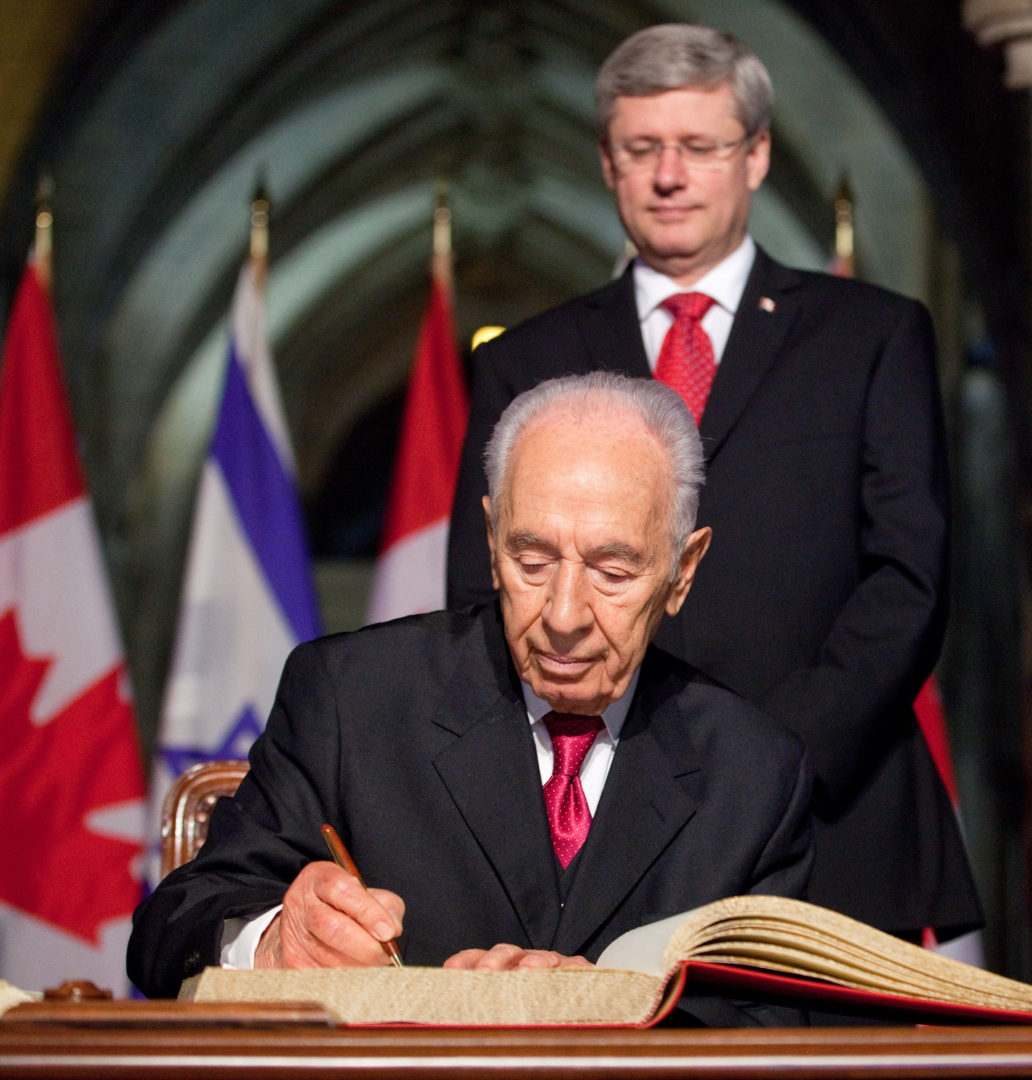Shimon Peres was not a man who thought small. His ambitions were not resigned to a four-, eight- or even 20-year term, but a lifetime. His legacy is a nation.
Few world leaders can claim a presence at the moment of their country’s birth, but Peres could, and it was this remarkable beginning that infused his long subsequent career with such depth and wisdom. To speak to him was to be humbled, for it was to sit in the presence of a man who had not only lived through his nation’s war of independence, but done reconnaissance for it. A man who had not merely served as head of the defense ministry, but overseen the very creation of his nation’s armed forces. A man who had not just met the leading statesmen of the last century – Ben-Gurion, Churchill, DeGaulle, Adenauer, Reagan – but worked first-hand with them.
Peres’ ability to serve in so many different capacities over the course of so many different decades under so many different administrations – negotiating a peace agreement one moment only to be tasked with curbing inflation the next – was a testament to his ability to transcend the myopic world of politics for a life of genuine public service. No matter his title, a deep moral constancy lay beneath, born from an incorrigible faith in the Zionist dream and a vision of a confident, Jewish state that was successful at home and at peace with the world. He was Israel’s indispensable man, a leader whose participation in the political arena was driven not by what would bring personal glory, but what his country needed to be done.
And to be sure, glory was often not forthcoming. To speak of the career of Shimon Peres is to speak of a life in which defeat and setback consistently accompanied success and progress. There were lost arguments, lost battles and lost elections, but never lost hope. He was handed endless opportunity for a quiet and dignified exit from public life and declined every time, knowing his cause, which was nothing less than the survival of a nation, was one for which no holiday could be justified. Even in his final years as president, an office Israeli political culture traditionally expects to be more seen than heard, he remained an activist, refusing to accept that even his nation’s highest honour could be anything but a platform from which to continue his life’s labour.
I had the privilege of meeting Peres several times during my own career in public service. In addition to his immense worldliness and invaluable historic perspectives, I was always struck by his personal dignity and depth of character. He was wise without being arrogant, stoic without being grim, and witty without being frivolous. He radiated the rare, quiet confidence of a person who has explored life in all its complexities and challenges and located its reservoirs of hope.
For those who dwell beyond its borders, Israel itself is a reservoir of hope – a promise, however contested, that peace and liberty can survive under even the most inhospitable of circumstances, so long as there are those willing to defend it. Peres’ biography is an essential chapter in this inspiring story of human achievement.
Stephen Harper was the 22nd prime minister of Canada.
